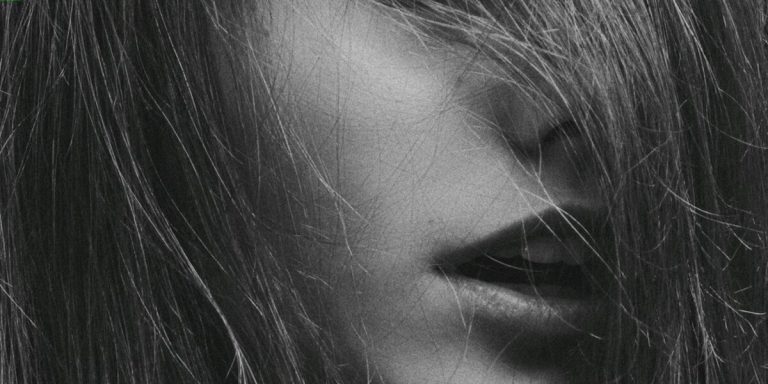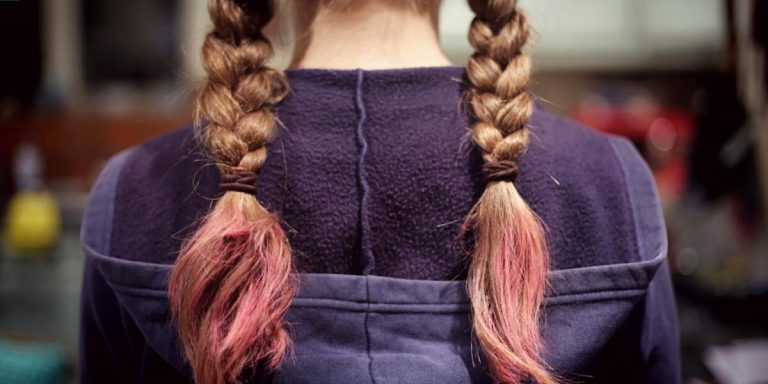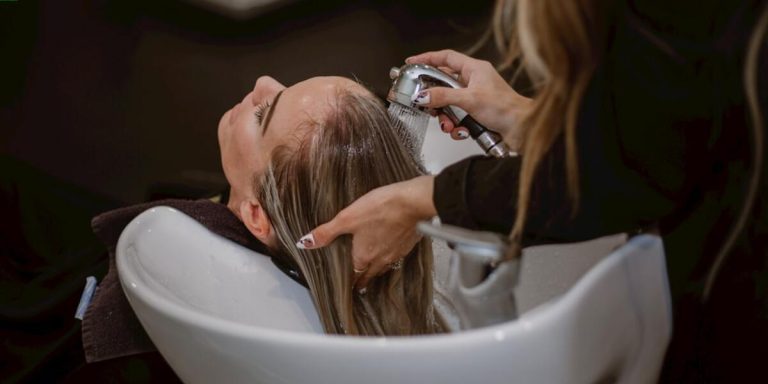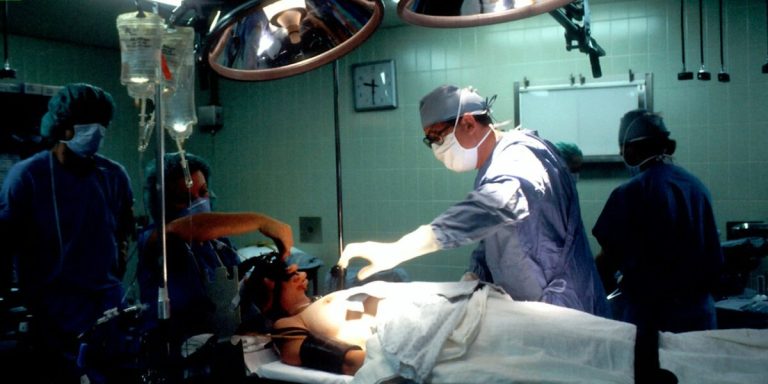Hair Loss PCOS Treatment: A Comprehensive Guide to Regrowth Solutions
Hair loss, often exacerbated by Polycystic Ovary Syndrome (PCOS), presents a challenging and complex issue for many. “Hair loss PCOS treatment” frequently heads the list of search queries as more people search for effective solutions to this twofold problem. Recognizing that hair thinning or balding from PCOS affects emotional well-being, not just aesthetics, underscores the importance of understanding the available treatments.
In our bid to provide quality information regarding such issues, we’ve compiled all you need in one place: A guide focusing on proven regrowth solutions specifically aimed at tackling hair loss associated with PCOS. From understanding your condition better to exploring various options like medications, lifestyle modifications and alternative therapies; each aspect has been meticulously detailed for easier navigation through this challenging journey towards rejuvenation.
Did you know?
Polycystic ovary syndrome (PCOS) is responsible for up to 30% of all hair loss cases in women, making it one of the most ubiquitous yet underdiscussed conditions contributing to hair thinning and baldness.
Understanding PCOS-Related Hair Loss
Polycystic Ovary Syndrome, commonly referred to as PCOS, is a hormonal disorder in women that often leads to various health complications- among them is hair loss. This issue of thinning strands or even bald patches can be quite distressing and confidence-diminishing for those dealing with it. The root cause behind this hair loss problem associated with PCOS lies in an excess production of male hormones – particularly testosterone.
An overabundance of these ‘androgens’ within the female body disrupts normal functioning. One such disruption manifests itself through changes in usual hair growth cycles. Hair follicles become increasingly sensitive to these levels of hormone fluctuations which resultantly shortens their lifespan, leading towards premature shedding and limited regrowth periods; thus causing noticeable thinning on the scalp.
Fortunately, despite being challenging due to its multifaceted nature, there are available treatments specifically tailored toward managing and reversing PCOS-related hair loss effectively today (2023). These include pharmaceutical medications aimed at rebalancing skewed hormonal profiles alongside healthy lifestyle alterations like diet modifications and regular physical activity that help combat symptoms naturally from inside out.
These methods collectively present a promising avenue not only towards restoring one’s crowning glory but also improving overall well-being by tackling underlying conditions contributing significantly towards exacerbated instances of constant shedding tied directly back into Polycystic Ovary Syndrome diagnosis.
Identifying the Connection Between PCOS and Alopecia
Polycystic Ovary Syndrome, often known as PCOS, is a common health condition that affects one in ten women of childbearing age. It’s characterized by hormonal imbalance and metabolic problems that can lead to various symptoms including hair loss – medically known as alopecia.
Alopecia associated with PCOS isn’t the same as typical male or female pattern baldness. This type of hair loss usually begins at the front of the scalp and progresses towards the back over time. Instead, many women with PCOS experience “diffuse” thinning which evenly disperses across their entire scalp.
Primarily, it revolves around hormones – specifically an excess production of androgens (male hormones) such as testosterone which are naturally produced in small amounts by all women but tend to be much higher in those suffering from PCOS.
The Impact of Hormonal Imbalance on Hair Growth
In the sphere of hair loss treatments, understanding PCOS-related hair loss throws light on one significant factor – hormonal imbalance. Often an overlooked aspect, hormones play a critical role in our body’s functions including growth and regeneration of various cells.
The impact these hormone fluctuations have on your scalp can be rather severe since normal hair growth relies heavily on balanced hormone levels. Let’s dissect how exactly these systemic changes affect the cycles of follicle development.
Hair strands undergo three key stages throughout their lifespan: Anagen (growing phase), Catagen (transition phase) and Telogen (resting period). In healthy circumstances, upwards to 90% remain in the growing stage while only a small portion enters into resting.
Besides instigating untimely baldness patterns among young females who otherwise wouldn’t exhibit them until much older years if at all; such abnormalities often further exacerbate stress.
Evidence-Based Treatments for Hair Loss in PCOS Patients
PolyCystic Ovary Syndrome (PCOS) is a complex disorder that can cause numerous physical changes and discomforts, among which hair loss stands as one of the most distressing. The hormonal imbalance underpinning PCOS often results in androgenetic alopecia or pattern baldness, making it essential to explore effective treatments for this type of hair loss.
Recent years have seen substantial progress in medicinal science with breakthrough treatments coming into light. In 2023, treatment options are no longer limited to general remedies but go beyond targeting specific root causes such as high levels of male hormones within women suffering from PCOS.
One evidence-based approach involves anti-androgen medications aimed specifically at counteracting surplus male hormones associated with PCOS-induced hair fall. Medications like Spironolactone not only reduce the production of testosterone but also hinder its binding process along affected scalp follicles thereby preventing further thinning and promoting regrowth over time.
On another note, minoxidil topical solution remains an enduring contender in treating female pattern baldness related to PCOS. This FDA-approved remedy works by prolonging the growth phase of your hairs allowing them more time for thickness development before eventually falling out naturally.
Insulin resistance plays a crucial role in many cases offering yet another angle for targeted intervention against this syndrome’s multifaceted nature.
Pharmacological Interventions: From Androgen Blockers to Insulin Sensitizers
Pharmacological interventions play a crucial role in revolving hair loss issues related to Polycystic Ovary Syndrome (PCOS). Incorporating the right medication can yield promising results, significantly reducing hair thinning and promoting growth.
Primarily, medical professionals rely on Androgen blockers. These are tailored specifically to counter elevated levels of male hormones or ‘androgens’ typically observed in PCOS patients. The surplus production of these hormones often leads to unwanted manifestations like excessive facial hair and scalp hair loss.
Two commonly used options include Spironolactone and Finasteride.
Spironolactone aids by blocking the impact of testosterone on your follicles, thereby preventing them from shedding prematurely – a common cause behind rapid balding seen with PCOS condition. Coupled with its anti-androgen properties is an additional benefit that it also serves as diuretic drugs helping regulate hormone imbalances precisely.
Finasteride functions similarly but is more potent than its counterparts holding promise for those dealing particularly with severe symptoms.
Innovative Therapeutic Approaches: The Role of Laser Therapy and Platelet-Rich Plasma (PRP)
Laser therapy is one of the trending treatments for PCOS-induced hair loss in 2023. It works by employing low-level lasers or light-emitting diodes which stimulate cell activity leading to increased hair growth.. A key advantage of laser therapy is its non-invasive nature and no significant side effects reported so far.
Lifestyle Modification Strategies to Combat PCOS-Induced Hair Thinning
The fight against hair thinning initiated by Polycystic Ovary Syndrome (PCOS) begins with lifestyle modifications. By altering certain behaviors and habits, one can potentially slow down the progression of hair loss and even kick-start new growth. In 2023, three strategies are commonly recommended by experts for managing PCOS-induced hair fall — maintaining a balanced diet, regular physical activity, and practicing stress management.
A balanced diet is an underrated weapon in combating PCOS-related hair loss. Consuming nutrient-rich foods boosts overall health but also specifically nurtures scalp health leading to stronger follicles less likely to shed prematurely. Integrating lean proteins such as fish or tofu along with iron-packed leafy greens supports healthy keratin production that constructs sturdy strands resistant to breakage.
Physical activity plays a dual role – it helps maintain hormonal balance disrupted in PCOS sufferer’s bodies while warding off insulin resistance often seen alongside this condition— both key areas linked directly to increased shedding rates if uncontrolled. Regular low-intensity exercise like yoga or walking has shown promise in balancing estrogen levels which indirectly influences your tresses’ life cycles positively.
Dietary Adjustments and Nutritional Support for Healthy Hair Regrowth
Firstly, incorporating protein-rich foods into your meals cannot be overstated. Hair is principally composed of keratin – a type of protein; thus, consuming enough proteins such as lean meat or plant-based sources like beans and lentils ensures steady supplies for robust hair growth.
Secondly, iron intake needs special attention in any diet aiming at reversing PCOS-related hair thinning. Several studies attest to the role played by this essential nutrient in promoting follicular health leading to stronger strands resistant against shedding. Iron-loaded food options include red meat, spinach or apricots among others.
Vitamins form another key ingredient on our list: specifically B-Vitamins which aid cell metabolism ensuring optimal oxygen supply for vibrant tresses while Zinc contributes significantly towards DNA synthesis – an indispensable factor behind cellular replication enabling faster strand-generation rates eventually countering thin-out effects caused due to PCOS complications. Foods rich in these nutrients comprise nuts/seeds coupled together with whole grains plus dairy items respectively.
Physical Activity as a Tool for Managing Symptoms of Polycystic Ovary Syndrome
Physical activity aids in regulating your hormone levels, primarily insulin, which plays a pivotal role in the occurrence of PCOS. When these hormones are within control, it can potentially amend metabolism issues that may be contributing to hair loss.
Aerobic exercises such as walking, jogging or cycling can help you shed excess weight if overweight – a common symptom associated with PCOS; this could further mitigate other complications like high blood pressure and diabetes linked with the syndrome. Regular workouts will boost your body’s sensitivity towards insulin thereby curbing excessive production of male sex hormones called androgens often attributed as another primary reason behind female pattern baldness.
Another form of workout known globally for its multitude benefits including stress reduction is Yoga. Stress management becomes critical since emotional turmoil might aggravate hormonal imbalances leading to more strands on the pillow than usual.
Strength training mustn’t get discredited either because it too assists by improving muscle mass hence boosting metabolic rate indirectly facilitating better insulin absorption resulting lesser free-flowing testosterone translating into lessened hair shedding.
Conclusion
And there you have it – a detailed rundown on hair loss PCOS treatment options. Dealing with hair loss can be daunting, but remember that you’re not alone in this journey. Multiple treatments are available and each offers its own unique pathway to potentially regaining your luscious locks once again.
We urge you not to stop here! Take advantage of the wealth of information floating around our website about various “Hair Loss Treatments”. It’s time for baldness to take a back seat while confidence takes over the wheel in driving towards an effective solution suiting your needs and desires.
Keep browsing because knowledge truly is power when combatting something as personal and impactful as hair loss induced by PCOS.







